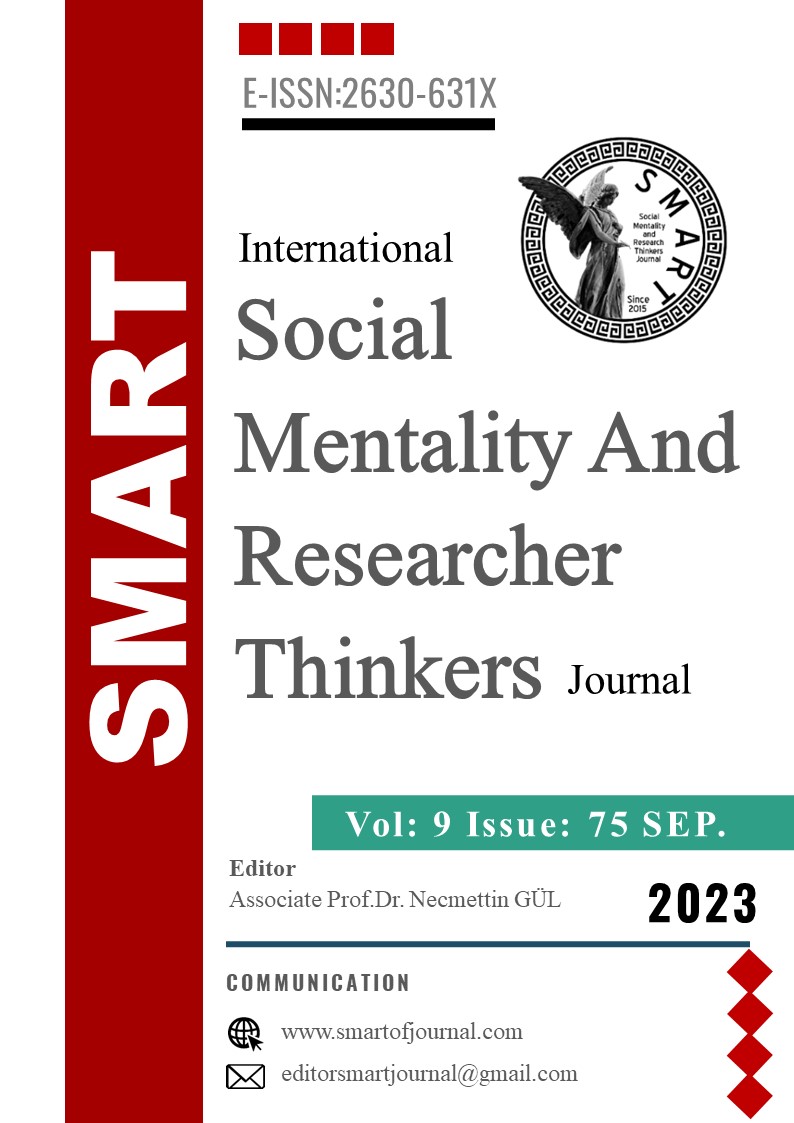Türkiye’de Uluslararası Ticaret Lojistiğinin 6 Şubat 2023 Depremi Sonrası Sektörel Durumunun Swot Analizi İle İncelenmesi
Author :
Abstract
İnsanoğlunun yüzyıllardan beri ilkel tarım ekonomisinden uzmanlaşmış, entegre, yoğun üretim olanakları olan değişen ihtiyaçlara ve teknolojik gelişmelere açık modern ekonomilere geçişi lojistik faaliyetlerinin gelişmesini beraberinde getirmiştir. İşletmelerin fiziksel dağıtım kapasitelerinin ve dolayısıyla ekonomilerin gelişimi için mamullerin değişimi de gereklidir. Lojistik sadece bir dağıtım faaliyeti olarak düşünülmemelidir. Ürünlerin üretim süreçlerinden satış sonrasına kadar yayılan bir temel faaliyetler sürecidir. Bu süreçte planlamanın, iletişimin ve maliyetlerin etkisi oldukça önemlidir. Lojistik sektörünün gelişmesinde küresel ticaretin etkili bir faktör olduğu bilinmektedir. Uluslararası ticaret mallarının taşınması ise uluslararası ticaret lojistiğini gerektirmektedir. Uluslararası ticarette meydana gelen gelişmeler lojistik kullanımını artırmakta, bu artış sonucunda ise lojistik alanında gelişmelerin yaşanması ihtiyacını doğurmaktadır. Lojistik sektörü son yıllarda Türkiye’nin hızlı gelişen sektörleri arasına girmiştir. Türkiye’nin coğrafi önemi, taşıdığı potansiyel ve uyguladığı politikalar ülkeyi zaman içerisinde Avrupa ülkeleri içerisinde uluslararası ticaret ve lojistik alanında rekabetçi bir noktaya taşımıştır. Ancak 6 Şubat 2023 Tarihinde Türkiye’de 11 ili kapsayan deprem, ulaşım ağları üzerinde derin tahribatlar meydana getirmiş, bu bölgedeki uluslararası ticaret ve lojistik faaliyetlerini derinden etkilemiştir. Bu çalışmada Türkiye’de 6 Şubat 2023 Depremi sonrası lojistik sektörünün durumunun SWOT (GZFT) analizi aracılığıyla uluslararası ticaret bağlamında incelenmesi amaçlanmış olup, özellikle tehditler ve zayıflıkları gösterir verilerden yola çıkılarak sektörü yeniden canlandırmak ve geliştirmeye odaklı olarak yönetsel, stratejik ve politik çeşitli öneriler getirilmiştir.
Keywords
Abstract
The transition of mankind from primitive agricultural economy to modern economies open to changing needs and technological developments with specialised, integrated, intensive production facilities for centuries has brought about the development of logistics activities. The change of products is also necessary for the development of the physical distribution capacities of enterprises and thus the development of economies. Logistics should not be considered only as a distribution activity. It is a process of basic activities from the production processes of products to after-sales. In this process, the impact of planning, communication and costs is very important. It is known that global trade is an effective factor in the development of the logistics sector. The transport of international trade goods requires international trade logistics. Developments in international trade increase the use of logistics, and as a result of this increase, it creates the need for developments in the field of logistics. Logistics sector has become one of the fastest developing sectors in Turkey in recent years. Turkey's geographical importance, its potential and the policies it has implemented have brought the country to a competitive point in the field of international trade and logistics among European countries over time. However, the earthquake on 6 February 2023, which covered 11 provinces in Turkey, caused deep damage to transport networks and deeply affected international trade and logistics activities in this region. In this study, it is aimed to examine the situation of the logistics sector in Turkey after the 6 February 2023 Earthquake in the context of international trade through SWOT analysis, and based on the data showing threats and weaknesses, various managerial, strategic and political recommendations have been made to revitalize and develop the sector.





